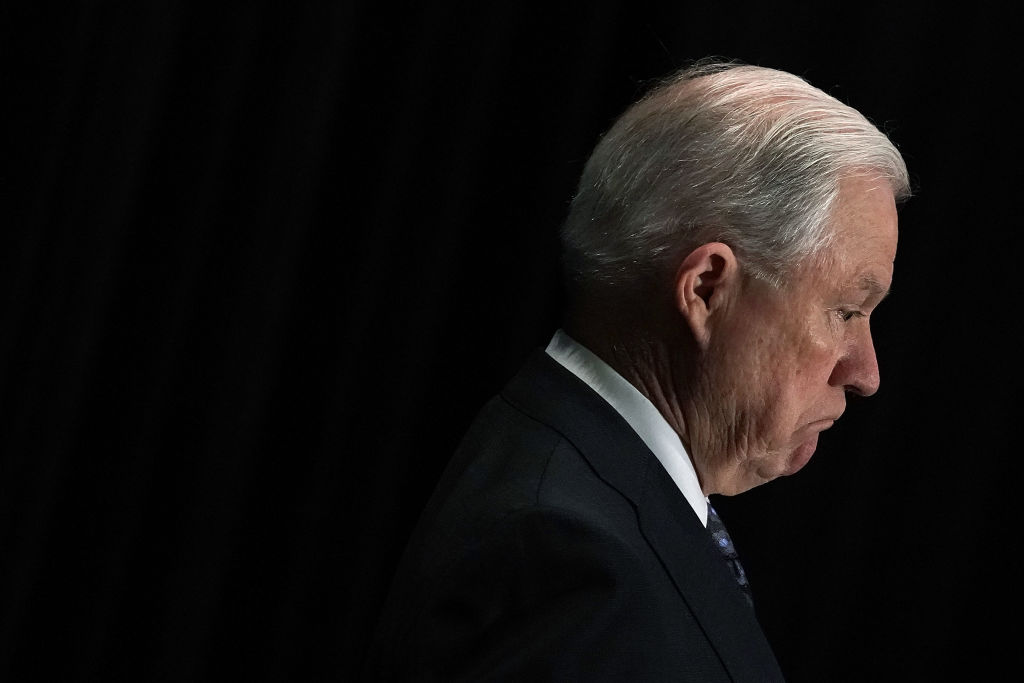A Republican federal trial judge held on Thursday that the entire Consumer Financial Protection Bureau — all of it — must cease to exist. The case is CFPB v. RD Legal Funding.
Judge Loretta Preska’s decision on this matter can barely even be described as an “opinion” because she devotes less than two pages of analysis to this question before proclaiming that a federal agency must be simply wiped away. Instead, Preska adopts the reasoning of two federal appellate judges who dissented in a similar case holding that the CFPB is, in fact, constitutional. Significantly, a crucial segment of Preska’s conclusions were only shared by one of these dissenting judges — out of a total of ten judges who heard that federal appellate case.
And it gets worse from there. The dissenting opinions Preska relies upon were published on January 31. On May 14, the Supreme Court handed down its opinion in Murphy v. NCAA — parts of which are inconsistent with Preska’s conclusion that the entire CFPB must be struck down. Preska’s opinion makes no reference to Murphy. In fact, the judge who literally judge ordered an entire agency to be shut down appears blissfully unaware of Murphy‘s existence.
To explain, the CFPB has a somewhat unusual management structure. Though its Director is nominated by the president and confirmed by the Senate, the Director serves a five year term and can only be removed for “inefficiency, neglect of duty, or malfeasance in office.” Though most judges to consider the issue believe such a structure to be constitutional, a minority disagree.
As Judge Brett Kavanaugh wrote in his dissenting opinion in PHH Corporation v. CFPB, a minority of judges who object to the CFPB’s management structure believe that “to carry out the executive power and be accountable for the exercise of that power, the President must be able to supervise and direct those subordinate officers.” Accordingly, Kavanaugh and a handful of other judges believe that the president must have the authority to remove a CFPB Director even if that Director has done nothing wrong.
Yet even Kavanaugh would only go but so far. The president must be allowed to fire a CFPB Director, according to Kavanaugh, but the CFPB may continue functioning.
Before today, only one judge claimed that the entire CFPB must fall. Writing only for herself in PHH Corporation, Judge Karen LeCraft Henderson claimed that the entire CFPB must fall because “above all else, the 111th Congress wanted the CFPB to be independent: free, that is, from industry influence and the changing political tides that come with accountability to the President.” That is, given the choice between an agency where the Director can be fired at will, and no agency at all, Henderson assumes that Congress would prefer nothing.
This is, to say the least, an extraordinary conclusion. When a court strikes down one part of a broader law, it frequently must ask whether Congress would have preferred other provisions of that law to fall along with it — this is an analysis known as “severability.” Yet, as the Supreme Court recently explained in Murphy, there is a very strong presumption against striking down more of a law than is absolutely necessary to excise the unconstitutional provision.
“In order for other . . . provisions to fall,” the Court explained in Murphy, “it must be ‘evident that [Congress] would not have enacted those provisions which are within its power, independently of [those] which [are] not.’”
The word “evident” appears nowhere in Henderson’s opinion. Nor does is appear anywhere in Preska’s very brief treatment of the legality of the CFPB. It should go without saying that judges who fail to cite a standard laid out in a binding Supreme Court decision typically do not see their decisions upheld on appeal.
So, if Preska’s RD Legal Funding opinion is reviewed by a higher court, there is very little chance that she will be affirmed (though it’s possible that the Supreme Court will ultimately agree with Kavanaugh’s analysis, Henderson and Preska’s reasoning is way out in right field). There is a danger, however, that the Trump administration will refuse to appeal this case — setting off a chaotic series of events where non-parties to the litigation attempt to intervene in the case after the district judge has already handed down a judgment.
In other words, if no one can be found who is both willing and able to appeal this decision, an entire agency set up to protect consumers will cease to exist due to the whim of a single person.

